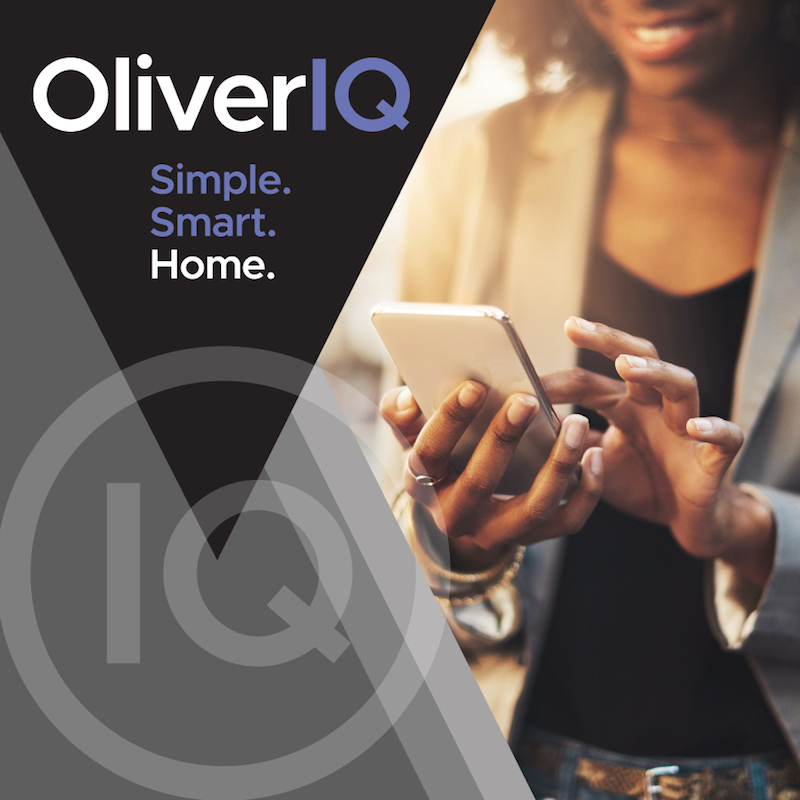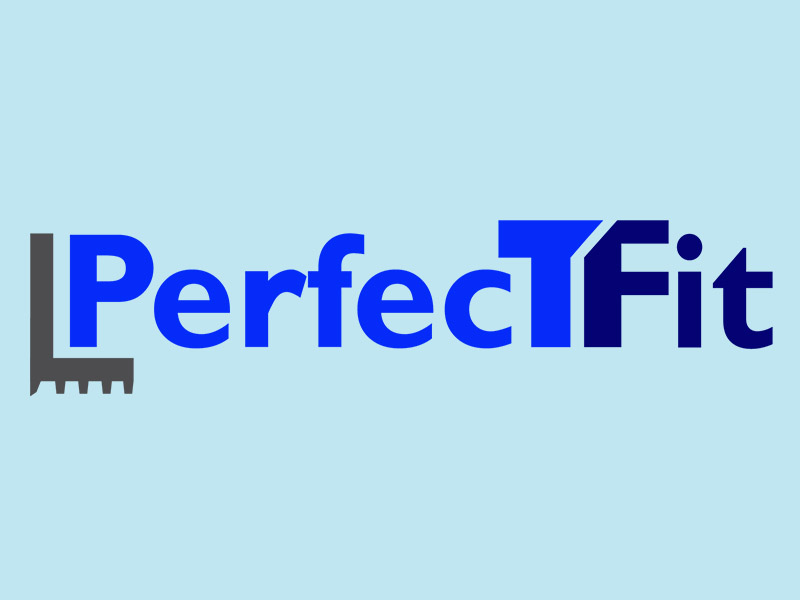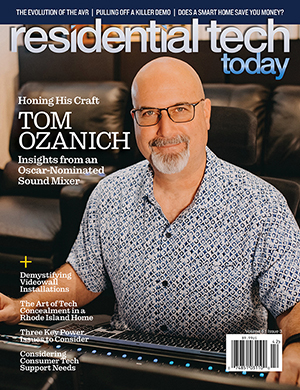OliverIQ, a new smart home as a service (SHaaS) platform company launching at the Consumer Electronics Show (CES) 2024 this week, offers a subscription model with unlimited support and a user-friendly app for control and automation of today’s most popular smart home devices.
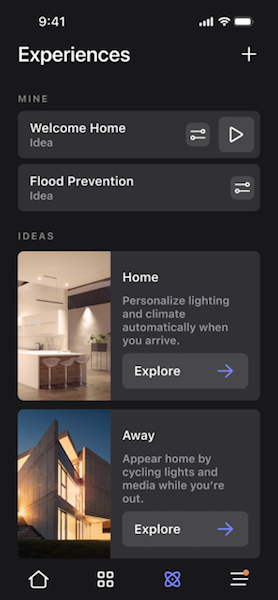
Partnering with national and global service providers, OliverIQ aims to scale their SHaaS platform rapidly, offering comprehensive product support, unlimited online and phone support, in-home assistance, and security system monitoring.
Founded by Control4 management team veterans Will West, Eric Smith, and Glen Mella, the goal of OliverIQ’s model is to simplify smart home device interoperability for the consumer.
By uniting various connected devices through the OliverIQ software which will be embedded either in common household devices such as routers, set top boxes, or the OliverIQ hub, along with a single, easy-to-use application backed by round-the-clock technical support, OliverIQ will bring a reimagined and completely accessible smart home to the market.
“Until now, no one company has been able to integrate and support the entire spectrum of smart home devices. OliverIQ helps its partners fill the gaps, becoming full-service home automation heroes in the eyes of their customers,”said West, CEO and cofounder of OliverIQ.
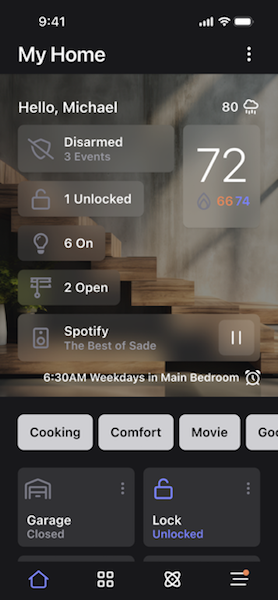
West explained that, in the current landscape, there are three options for constructing a smart home: hire a professional integrator to create a custom system, with costs starting in the mid-five figures; install a home security system that can integrate with a limited selection of other connected devices – more “smart access” than “smart home;” or pour endless hours into building it yourself out of an ever-growing assortment of DIY connected devices.
The DIY smart home sector is both the largest and the most troubled, OliverIQ contends. Consumers are overwhelmed with the sheer number of connected devices in their homes, each requiring its own distinct application for management. Managing DIY connected devices individually is annoying. Getting them to work together is nearly impossible. And, even if a consumer manages the impossible, something breaks.
OliverIQ says that “smart home decay” is inevitable — wear and tear, battery death, firmware updates, etc. cause devices to suddenly and unpredictably stop working together. Connected devices have an average lifespan of 6-8 years, but there are so many of them in the average home, and there are so many software updates by manufacturers, that devices and connections between devices go offline regularly. You’re never done setting up a smart home because it must be constantly maintained, OliverIQ pointed out. This complexity is way beyond the capability and desire of typical consumers to manage.
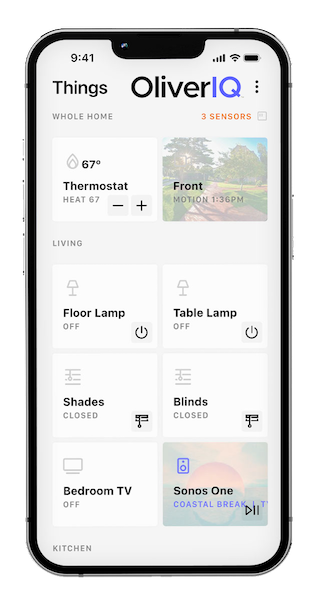
OliverIQ’s SHaaS solution offers the technical service and support needed by homeowners to build, program, and maintain a truly smart home. Support is ongoing, not a one-and-done install, so smart home functionality doesn’t degrade over time. This, the company says, is affordable, complete smart home support for everyone.
“With OliverIQ, we’re breaking down the barriers in the smart home,” said Smith, CTO and cofounder of OliverIQ. “Our platform is designed to bring the convenience and lifestyle of a fully automated home to a broader audience at an affordable price point, with at-your-service technical support.”
The SHaaS model addresses the complexities and maintenance challenges typically associated with smart home setups. Consumers no longer need to navigate the cumbersome process of integrating multiple devices or managing ongoing maintenance. OliverIQ handles everything from initial setup, automation, software updates, to troubleshooting — all managed seamlessly through an app.
Homeowners get unlimited technical support calls, as well as access to OliverIQ’s Knowledge Center. Consumers get one number to call for help with any connected device. OliverIQ’s technical support teams then can offer guidance remotely via a phone or computer screen and perform remote device takeovers to troubleshoot issues for the homeowner.
If a problem cannot be solved through remote technical support, the service provider can deliver low-cost in-person service, with the cost of the initial visit applied toward any required repairs. OliverIQ operates on a subscription-based business model that is paid through the service provider. OliverIQ communicates with the connected devices in the home through a multiprotocol platform, which can be embedded in the service provider’s router, cable box, or other devices.
OliverIQ will also offer a sub-$100 standalone multi-protocol hub that can be added into home systems where another hardware device for embedding OliverIQ is not present.
So, why has a service like this never been offered before? “There has never before been a provider with the expertise to succeed at integration, and the scale to succeed at support,” West stated.
Having a set of smart devices across your home doesn’t necessarily make it a smart home but having a set of interconnected smart devices does. Integrating connected devices so that they work together is a significant technical challenge. The modern connected home essentially needs “an IT department.”
There are dozens of RF standards and protocols, including Wi-Fi, Bluetooth, Thread, Matter, Z-Wave, Zigbee, etc., as well as proprietary ecosystems. Some manufacturers intentionally build walled gardens, aiming to lock consumers into their device ecosystems. Smart home automation requires integrating new and existing devices regardless of RF technology or manufacturer. With OliverIQ embedded in an ISP’s router or with the OliverIQ multi-protocol hub, the OliverIQ app can communicate with more than 90% of the most popular off-the-shelf smart devices in the market today.
Through their service provider partners, OliverIQ is building the scale to support homes nationwide. Service has always been the crucial missing piece for a successful smart home experience. OliverIQ is partnering with regional and national providers who can provide virtual and in-home support. This scale keeps per-customer costs low, making home automation an affordable option for more people.
Service providers can offer their customers ease, convenience, and security, according to OliverIQ. They enable homeowners to remotely accept in-home deliveries and services. They give them one number to call whenever they need help with their connected devices.
“We’re creating sticky relationships between homeowners and services providers,” West said. “Customers won’t give up their smart home for a slightly lower monthly internet bill. With OliverIQ, today’s leading in-home service providers have a powerful platform for selling, servicing, and delivering high-demand solutions throughout today’s connected homes.”
OliverIQ is currently in beta with select partners in the U.S. and will be in market by Q2 2024. OliverIQ will be sold as a subscription model through ISPs, home center retailers, security providers, and builders.
Visit OliverIQ at CES booth 51932 in the Venetian Expo.



